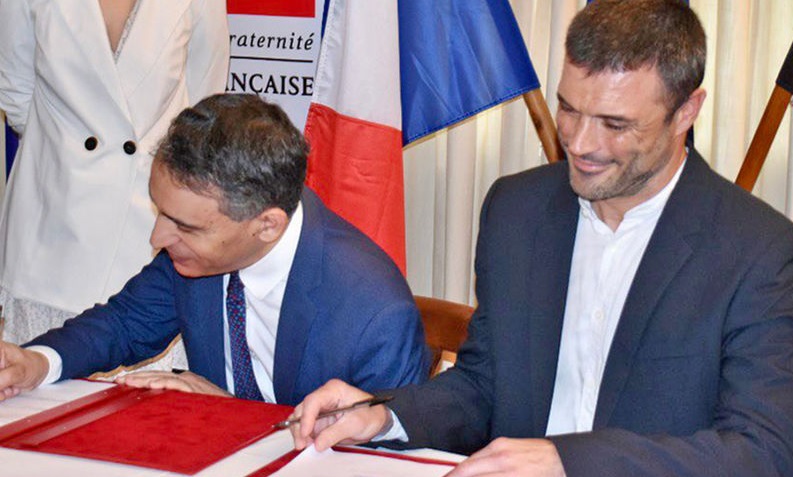Dar es Salaam. France has made a five-year commitment of 100 million euros (about Sh263.4 billion) to improve sexual and reproductive health and rights (SRHR) for youth and women in Tanzania.
The French ambassador to Tanzania, Mr Nabil Hajlaoui, said on Wednesday the commitment was made in March this year by the French Minister for Foreign Affairs, Ms Catherine Colonna, as she unveiled France’s international strategy on sexual and reproductive rights and health for 2023-2027.
He was speaking during the launching of a two-year new cooperation project called “Tanzafya”, which aims at improving and strengthening SRHR of adolescents and youth in Tanzania.
The overall objective of the project, said Mr Hajlaoui, is to contribute to the reduction of morbidity and mortality related to sexual and reproductive health among adolescents and young people aged 10-24 years in the Dodoma Region.
“Health, in particular the improvement of SRHR, is a top priority for France at international level which reflects its ambitious feminist diplomacy and translates into the projects developed by the Embassy,” said Mr Hajlaoui.
To start with, the project to be implemented by three civil society organizations; Doctors of the World (Médecins du Monde), Umati (Chama cha Uzazi na Malezi Bora Tanzania) and the Doris Mollel Foundation (DMF), will be carried out in Dodoma before extending to other regions.
The three implementing partners will work in close collaboration with various ministries and government stakeholders.
Assistant director for child and adolescent health in the Ministry of Health Felix Bundala said they selected Dodoma due to the high prevalence of gender-based violence and its needs in terms of health provision and services.
He said Dodoma being in the fast-growing city, the rate of teenage pregnancy is estimated at 23 percent, which is above the national level rate, and most are unintended pregnancies.
Dr Bundala said teenage pregnancy across the country is at an average rate of 22 percent.
He said the just launched project will enhance reduction of gender-based inequalities with regards to access to health care and the promotion of women’s rights over their body.
“We have the responsibility to protect them. We want to ensure that a large group of adolescents get the right and quality information,” said Dr Bundala.
More specifically, the project targets 13,800 young people and adolescents.
“We are optimistic, the project will strengthen the quality and accessibility of the provision of SRHR care at the community level,” Dr Bundala exuded his optimism.
Tanzafya is a project supported by the French government through a funding mechanism called FSPI—for “Solidarity Fund for Innovative Projects”, which is coordinated by the French Ministry of Foreign Affairs.
Speaking at the event, Umati executive director Suzana Mkanzabi commended the French Embassy for seeing a call for action to support the government’s efforts to reduce maternal and mortality rate which is contributed by teenage pregnancy.
“This project will address adolescents’ challenges in making informed decisions about their sexual reproductive health and rights,” said Ms Mkanzabi.
Further, she said, the project will enhance the capacity of healthcare providers in provision of youth friendly services.
Médecins du monde executive director in Tanzania Ivan Duran said the project will improve young people’s and adolescents’ knowledge of their rights and sexuality, with a specific focus on reducing gender inequalities.
“We are going to produce a film with adolescents. We will try to be innovative enough to meet the intended goal,” said Mr Duran, noting that they are going to implement the project in close contact with the government authorities.
Doris Mollel Foundation executive director Doris Mollel said, “The project will implement an advocacy strategy with national decision-making bodies to promote effective recognition and better consideration of sexual and reproductive rights in national legislation.”
Teenage pregnancy is not a problem to only Tanzania, but also to its peers in the East African Region.
In Kenya, about 21 percent of all pregnancies in 2021 were among adolescents aged 10-19, according to the given country’s official data.
Uganda, for its part, according to the country’s ministry of Health, 25 percent of Ugandan teenagers become pregnant by the age of 19.
Source : TheCitizen











